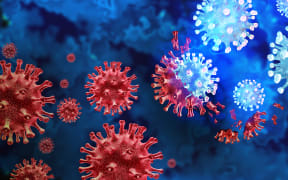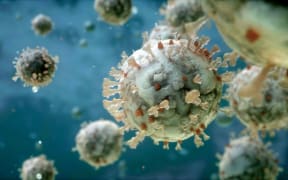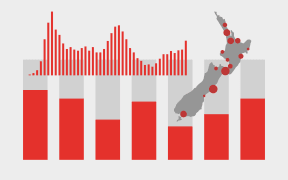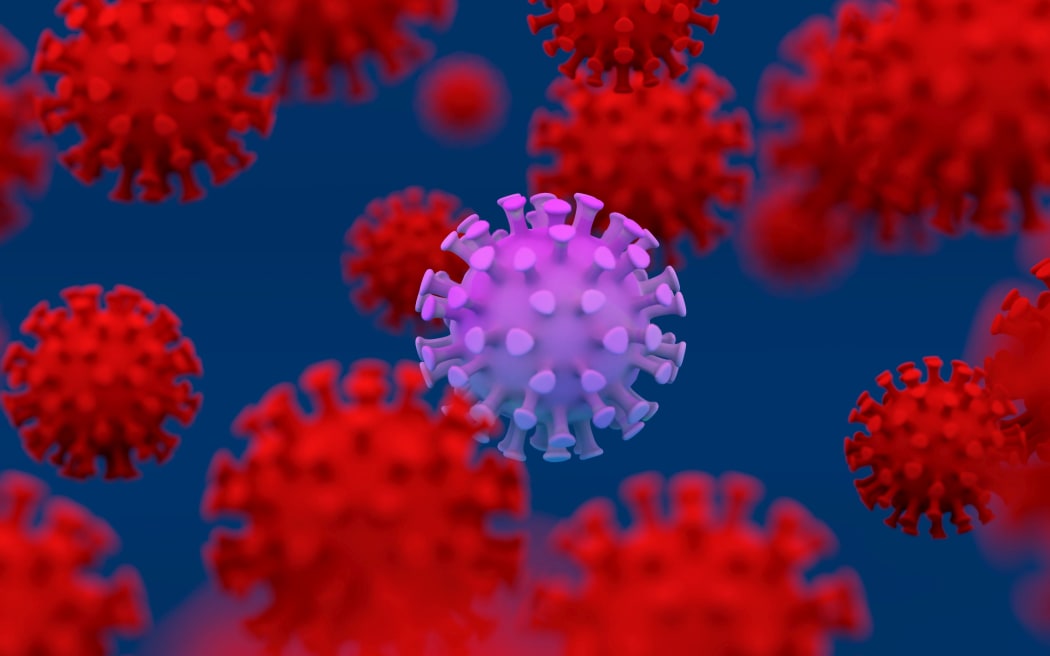
A 3D rendering of a new species of Covid-19. File pic. Photo: 123RF
Explainer - A new Covid-19 variant - BA.2.86 - is causing concern over its large number of mutations. So what is being done to monitor this "radically different" variant in New Zealand?
The World Health Organisation, which has announced BA.2.86 is a "variant under monitoring" (its lowest level of concern until more is known), says so far there is no evidence that it spreads faster or causes more severe illness.
New @WHO variant under monitoring BA.2.86
— Maria Van Kerkhove (@mvankerkhove) August 17, 2023
V limited info available right now but large # of mutations needs closer monitoring
Surveillance, sequencing & #COVID19 reporting critical to track known/detect new variants
TAG-VE
Updated page live soon⬇️https://t.co/VNvjJn8Xcv
The medical director of diagnostic microbiology at Houston Methodist Hospital, Dr S Wesley Long, said its many mutations make BA.2.86 "radically different in its structure" compared to earlier variants.
It stems from an "earlier branch" of the coronavirus, so it differs from the variant targeted by current vaccines, he said.
The director of the UCL Genetics Institute, Prof Francois Balloux in London said it was the most striking Covid strain the world has witnessed since the emergence of Omicron.
Balloux added that how well the new variant fared, relative to other Omicron subvariants, would become clearer in the coming weeks.
However, he did not expect a new wave of cases because most people have now been vaccinated or infected with Covid, or both.
So what else is known so far?
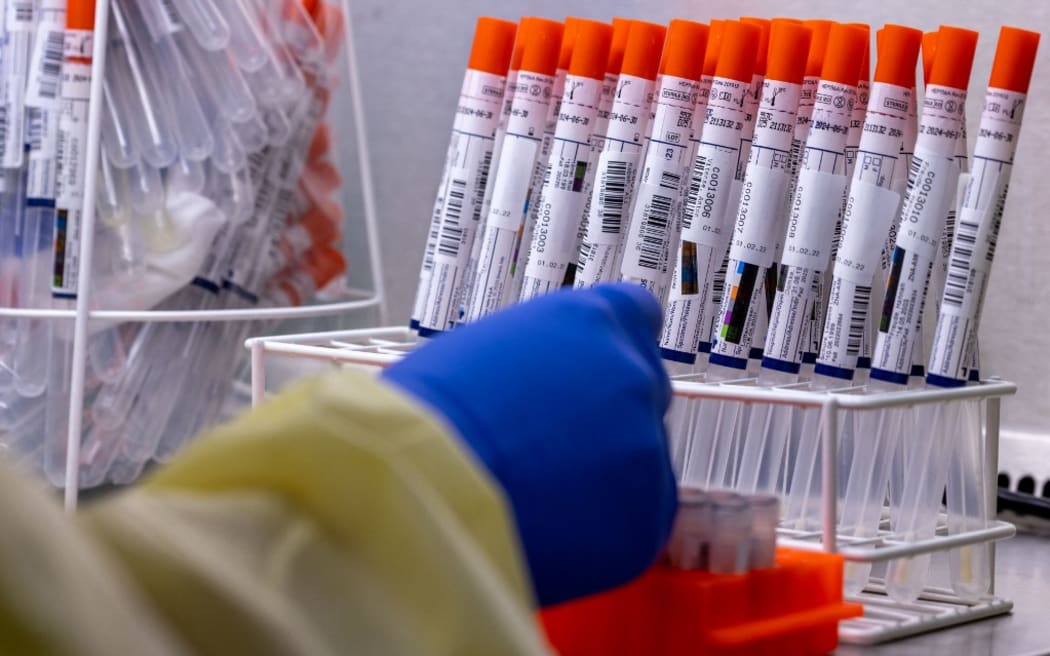
Tests have confirmed the new variant in six countries in the last month (file image). Photo: AFP
Covid infections and hospitalisations have already been rising in the US, Europe and Asia, with many cases over the northern hemisphere summer attributed to the EG.5 "Eris" subvariant, a descendant of the Omicron line.
In the last month BA.2.86 has been found in Denmark, Switzerland, South Africa, Israel, the US and the UK, a WHO official said.
Routine airport screening and wastewater sampling in a handful of countries have helped find the cases.
With the cases mostly not being linked and testing declining in most countries worldwide, there is concern the spread could be a lot more widespread than the number of confirmed cases indicates.
What is the expert thinking in New Zealand?

Professor Michael Baker Photo: Supplied / University of Otago
Epidemiologist Professor Michael Baker from Otago University agrees the extent of the genetic change is large and that is why the variant is attracting such interest.
"In general, more genetic change means that the virus has more structural changes that affect how it behaves, particularly its ability to escape human immune responses and infect a lot more people.
"But we need to see how it behaves in human populations, and whether we see a growth advantage that would appear as new waves of infection in countries across the world after it is introduced."
His second concern is that the extent of these changes is a reminder that SARS-CoV-2, the virus that causes Covid-19, is still capable of big jumps in evolution.
"In this case the extent of changes rivals those that were last seen with the emergence of the new Omicron variant in late 2021. Seeing these large jumps in viral evolutions tells us that the pandemic is not yet over."
A Ministry of Health spokesperson said at this stage, there was no evidence that the new variant has a transmission advantage or that it caused more severe illness.
How will we know it has reached Aotearoa?
Whole-genome sequencing (WGS) is used to identify which variant a person is infected with. This is possible for samples collected for PCR testing but not through rapid antigen testing (RAT).
So people arriving from overseas who have a positive RAT are encouraged to receive a follow-up PCR test so that whole genome sequencing can be performed. This helps identify which new variants are arriving in the country, the Ministry of Health spokesperson said.
The ministry still works alongside the Institute of Environmental Science and Research who conduct whole genome sequencing and other surveillance measures.
ESR also undertakes wastewater surveillance including at Christchurch and Auckland airports to monitor cases of new/ emerging variants of concern entering the country.
It has the capacity to test for BA.2.86, in both clinical and wastewater samples, and by mid-August no cases had been detected, the ministry spokesperson said.
Public online dashboards for WGS and wastewater testing are updated regularly to show the variants circulating in New Zealand. They can be viewed here and here.
The level of wastewater testing has decreased so this system is not as sensitive to new viruses arriving as it used to be, Baker said. "But if BA.2.86 does spread widely in NZ, this system will detect it."
Will existing vaccines cope with it?
It is too soon to know, however, experts continue to stress that being vaccinated is the best protection against serious illness and death.
"Viral evolution will almost inevitably reduce the effectiveness of current vaccines over time," Prof Baker said.
"As we have seen, the Covid-19 vaccine will need to be reformulated from time to time to keep ahead of these changes. This is what happened with the new bivalent mRNA vaccine that is now being used."
Emerging variants that show a transmission advantage, also tend to have immune evasion properties, the ministry spokesperson said.
"However, to date, there is no evidence to indicate that BA.2.86 would impact vaccine efficacy. The ministry will continue to monitor this space for new evidence."
Major vaccine manufacturers such as Moderna and Pfizer have updated their booster vaccines to deal with other variants that have emerged in the last few months.
Impact of lifting last Covid-19 restrictions

A nurse talks to a patient in a medical centre. File pic Photo: 123RF
The government dropped the last remaining mandates - isolation for seven days and wearing a mask in healthcare facilities - on 15 August.
The Ministry of Health says the current guidelines to prevent transmission remain the same.
People are encouraged to stay at home if unwell, anyone with Covid symptoms should take a RAT, and if positive, isolate for five days, even if symptoms are mild.
Baker believed it was now a case of waiting to see if the new virus lineage changed how the virus behaved when it infected large numbers of people.
"Such changes have the potential to result in more infections (by becoming more infectious or better at escaping immunity from vaccination and prior infections), or more harm (potentially from being more virulent with a higher risk of hospitalisation and death).
"If that happens, then New Zealand would need to consider a return to stronger control measures."
Will it get a catchier name?
BA.2.86 has been nicknamed Pirola, however, Baker was unsure that would catch on.
